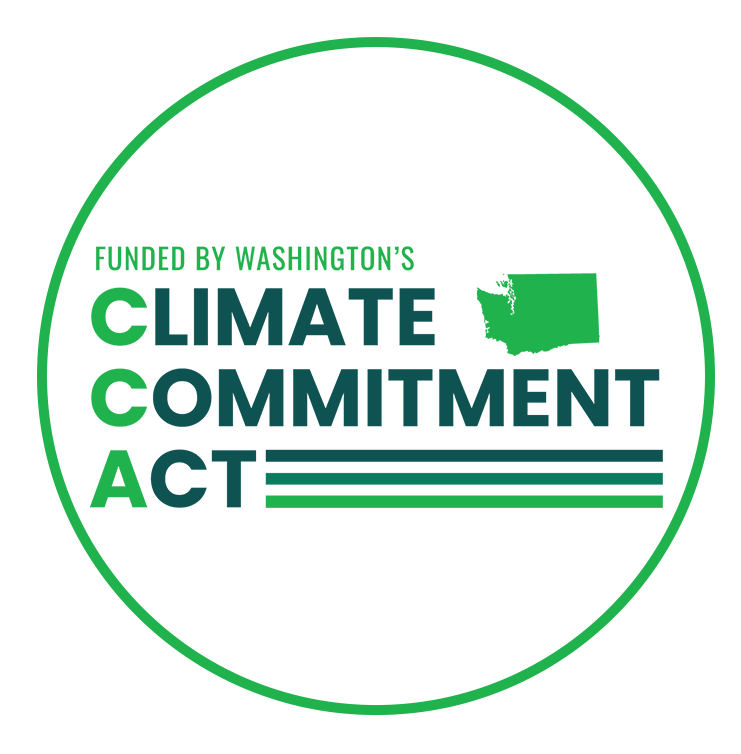The massive carbon tax is back. And one oil company is lobbying for it.

When voters overwhelmingly opposed Initiative 1631, the carbon-tax initiative, last fall, many thought the issue was dead. It isn’t. Chair of the Senate Environment Committee, Reuven Carlyle, has proposed a new bill that takes the unattractive parts of 1631 and makes them more complicated and volatile.
Ironically, that complexity may be why British Petroleum (BP) is now aggressively lobbying for it.
Senate Bill 5981 would impose a price on carbon dioxide using a cap-and-trade system, by which the state would set CO2 emission limits and then sell permits to companies covered by the limits. This is the system used in California and the cost is about $15 per metric ton (MT) of CO2 reduced, the same price as the carbon tax proposed by failed I-1631. The cost of the permits would be passed on to consumers, just like a carbon tax.
Why would BP support cap-and-trade but oppose a similarly-priced carbon tax? One reason could be because they believe they can use the complexity in the law to their advantage. Cap-and-trade systems are complex and create many opportunities to game the system. Big companies, with lobbyists, lawyers, and accountants, often feel they can use the system to their advantage.
For example, SB 5981, proposes an extremely complicated system for figuring out how the government would give out free carbon-emission credits to industries that may leave the state, like petroleum refiners, to encourage them to stay. To implement this, the bill would require the state to “contract with third-party experts that are not financially affiliated with industries under consideration to assist the department in gathering data and conducing analysis as necessary to implement the provisions of this subsection.” The state would have to contract out because the system is confusing and legislators recognize, rightly, that state agencies don’t have the expertise.
The calculation to determine who would receive free credits involves analyzing the efficiency of a manufacturing plant, by utilizing a “combined output-based and emissions intensity-based assessment benchmarking methodology for determining the allocation of allowances to energy intensive, trade-exposed industries.” It would also have to take into account the worldwide competitive market.
How will that work? It won’t. The U.K. tried this and even touted its success with the Tata Steel plant in England, saying it reduced CO2 emissions and was competitive worldwide. They even had Tata Steel visit Governor Inslee in 2016 to boast about their system. Weeks later, Tata Steel officials announced they were closing their plant in the U.K. Despite their apparent confidence that they could accurately assess the plant’s worldwide competitiveness and the fluctuating global market, they turned out to be horribly wrong just weeks later.
Other companies, however, will effectively game the system and benefit from the complex rules. When a cap-and-trade system was proposed in 2009 in Congress, New York Senator Kirsten Gillibrand wrote in the Wall Street Journal that the cap-and-trade system was so complex, that Wall Street financiers would see huge rewards.
She wrote, “it may seem hard to imagine a financial market poised to deliver significant growth. However, a rising number of investors and financiers see one in the trading and reduction of carbon.” Less than a year after the crash of financial markets, she was bragging that cap-and-trade would benefit that same financial industry because it would require so many experts to make it work.
Hiring all those “experts,” however, is false security. Making cap and trade work without causing significant economic impact is very difficult. How can Washington state agency officials, who would pay no price for mistakes, and who don’t work in these industries on a daily basis, expect to accurately assess a manufacturing plant’s energy efficiency compared to other similar plants and their position in the world competitive market? They can’t.
They don’t have the knowledge or personal incentives to get it right. Ultimately, such decisions are made politically. We have seen this in Washington when the state’s aluminum plants were idled suddenly due to changes in the international competitive climate. Politicians jumped in and changed the rules to save the plants. It is what happened in Germany under their cap-and-trade system when the cost of compliance became too high.
In fact, the bill’s authors themselves anticipate job losses and even set aside funding for those who are harmed by the system. They admit it will cause harm.
This year’s cap-and-trade proposal is a political system masquerading as an “objective” process. That is likely one reason companies like BP support it. Complexity and politics favor big corporations. As much as some on the left complain they don’t like corporations, the simple reality is that big corporations allow them to control the economy more effectively. It is easier to cut deals with one big company rather than many little ones. Regulation favors the rich. Average taxpayers, however, are the ones who end up paying the price.





